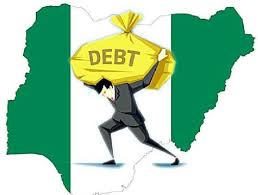Economics and financial analysts have raised serious concerns over Nigeria’s fiscal deficit which surged to N7.05 trillion by the end of the third quarter of 2024.
President Bola Tinubu on Wednesday revealed this during the presentation of the N47.96 trillion 2025 budget tagged Budget of Restoration to a joint session of the National Assembly.
He also announced an ambitious revenue target of N34.8 trillion for 2025, alongside a projected economic growth rate of 4.6 per cent.
The widening fiscal gap highlights the government’s ongoing struggle to balance ambitious spending plans with revenue generation, underscoring a continued reliance on borrowing.
Economists and financial experts have expressed concern over the widening fiscal deficit and its implications for Nigeria’s debt sustainability and economic stability:
“A deficit of this magnitude raises questions about adherence to the Fiscal Responsibility Act (FRA), which caps the fiscal deficit at 3 percent of GDP. At 3.87 percent of projected GDP for 2025, this level of borrowing could crowd out private sector investments and strain debt servicing,” said Dr. Ayo Olukotun, a fiscal policy analyst.
Experts highlight Nigeria’s historical struggle to meet revenue targets. “Revenue collection remains a weak point. While non-oil sectors have seen modest growth, tax administration and compliance need urgent reforms to close the gap,” noted tax consultant Bukola Adeniran.
“The administration is prioritizing growth through capital expenditure, which is commendable. However, there must be a balance to ensure debt does not spiral out of control, especially with rising debt service costs,” said financial analyst Tunde Ajayi.
Despite the fiscal challenges, Nigeria’s economy showed signs of recovery in 2024, expanding by 3.46 per cent in the third quarter of 2024, up from 2.54 per cent in the third quarter of 2023, signaling a rebound driven by improved agricultural output and industrial activity.
Nigeria’s foreign reserves also stand at $42 billion providing a buffer against external shocks. Exports outpaced imports, resulting in a trade surplus of N5.8 trillion, according to the National Bureau of Statistics.
President Tinubu emphasized his administration’s commitment to achieving macroeconomic stability, reducing inflation, and fostering inclusive growth.
The N7.05 trillion deficits raise questions about Nigeria’s fiscal strategy as the government seeks to finance development while adhering to fiscal responsibility laws.
The projected N13.1 trillion deficits for 2025 represents 38 per cent of total federal revenues, underscoring the urgency of reforms in tax collection, spending efficiency, and alternative financing mechanisms.
To address these growing fiscal challenges, the government aims to lower the deficit to FRA thresholds by 2025 within the medium-term framework, and also finance the shortfall primarily through domestic sources to avoid exposure to volatile external debt markets.
The government also plans to strengthen tax administration, combat evasion, and explore untapped sectors like technology and mining.
The National Assembly is expected to scrutinize the 2025 budget proposal, with debates likely to focus on fiscal discipline and debt management strategies.
